Careers in Information Science
If you are interested in working in the information science field, there are many different career paths available, including positions within companies, universities, government, and more. Archives and records management, information architecture and website design, computer engineering, and library science are just a sample of the many exciting careers available to you. The options are endless!
Information Professionals are the people who create, organize, and maintain the wealth of information that makes modern life possible. These are the people behind the websites we visit, the search engines we use and the news that we read. They are employed by our hospitals, our cultural institutions, and even some companies. Some information professions have existed for centuries, while others are so new that they don’t have a uniform job title yet. Information professionals are everywhere, and it is the goal of this website to help you get to know them!
From librarians to research scientists, database administrators to SEO analysts, information professionals help to get the right information to the right people at the right time. The information professions exist in almost every field: hospitals and arts organizations require document preservation and retrieval services just as much as businesses and universities.
A sampling of the research, policy, and technology issues addressed by information professionals include digital archives and libraries, electronic records, information retrieval systems, information policy, webometrics, user experience design, visitor studies, economics of information, information visualization, curation, reading interests, document and genre theory, social studies of information, community and indigenous archives, preservation, literacy, management of libraries, archives, and museums, and more.
For those considering a career in information science and technology, ComputerScience.org has created a guide that explores careers for individuals interested in data science, including salary potential, educational paths, advancement opportunities, and professional resources. Explore the guide to learn more.
For those interested in higher education careers, ASIS&T’s Annual Meeting can help you find your next academic job or qualified candidate. As a free service, ASIS&T brings together hiring departments and job-seeking candidates all in one convenient location.
For Doctoral Students/Academics, ASIS&T’s Annual Meeting (AM) will provide you a venue to explore your job opportunities, get career advice and interview with leading institutions. Explore the current job postings to discover how ASIS&T’s AM can help you obtain your future academic position. Explore the ASIS&T Academic Directory of Programs to find the right program for your goals.
For Higher Education Institutions, ASIS&T’s AM is a convenient recruitment tool for networking and interviewing with qualified candidates in the information studies and technology fields attending the AM.
We’ve assembled a range of job descriptions organized by different occupational groups within the information profession with educational requirements, skills, average salaries and more. Read interviews from leaders in the field and their advice to those entering the profession.
Advice from Leaders in the Field
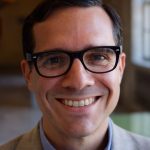 Information Architect and Partner in Futuredraft
Information Architect and Partner in Futuredraft
Where do you work and what is your job title?
I’m a partner in Futuredraft, a digital design consultancy based in Oakland, CA. My business card says I’m a designer. I’ve self-identified as an information architect since the mid–1990s. I’m in the world to help make information easier to find and understand, and I design products and systems that enable this; all of these titles are just labels to help us talk about it.
What are some of your job responsibilities? (Or, describe a typical day on the job)
At Futuredraft, we start from the premise that the traditional “waterfall” design process is broken. The traditional designer-client dichotomy — in which designers gather requirements, research the problem space, go off to work in isolation, and then spring “deliverables” on the client for formal approval — is counter-productive. Successful design results from a close collaboration between people subject matter experts and people who understand the affordances and constraints of various media. Clients and end users often understand what they need and want, but can’t articulate it in ways that work well on the web or as mobile applications. We help activate this knowledge though close collaboration with the people who influence the project.
Because of this, my primary job responsibility is solving complex information organization problems by leading design co-creation sessions with product owners and their end users. These sessions are usually in-person, and involve a lot of thinking and drawing “on the fly.” I liken it to jamming with experienced, passionate musicians: we make beautiful “music” together and, in the best cases, everyone leaves the conference room feeling energized and smarter than when they came in. It’s very exciting! I also get to synthesize what we’ve discovered, and mold it into artifacts that communicate the design intent in collaboration with the people who will be building the final product.
What education/career path led you to where you are today?
My background is in architecture, of the brick-and-mortar type. Architecture has been incredibly important in my career. There is evidence that we experience interactive digital systems, such as websites and mobile applications, asinformation environments. For example, think of how Google introduced their new Photos app: “A place where your photos & videos are safe and automatically organized.” The use of “place” in that sentence is not accidental; we often use spatial metaphors when we describe the way we interact with these systems. Like traditional architects, I also make places — but mine are made of language.
What are some of your favorite things about your line of work?
I love the challenge of constantly having to learn about fields that I know very little about: how realtors track leads, how airline booking systems work, how law firms manage their documents, how money flows from credit cards to banks and vice-versa, how surgeons evaluate the severity of injuries. I will never have in-depth expertise in any of these fields, but I now know enough to have informed conversations with people who do.
I also love being challenged in the one area where I do have in-depth expertise: designing for digital media. I’m fortunate to be able to work with world-class colleagues who, like me, have been doing this work for a long time. Collaborating with brilliant, experienced peers is an excellent way of improving your skills.
Do you have any advice to someone just getting started in the information profession world?
You are in an important and valuable stage of your career: your mind is still open and expansive. Note how this feels, and try to carry this spirit forward as your career progresses. So many people allow their minds to close down as their expertise deepens! To quote Zen master Shunryū Suzuki: “In the beginner’s mind there are many possibilities, in the expert’s mind there are few.” Strive to keep your beginner’s sense of openness even as you develop competency in your craft. Designing the information environments we live in is serious business, but it can also be great fun. Make it so!
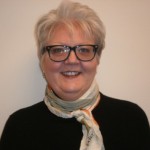 Clinical Terminology Specialist, Truven Health Analytics
Clinical Terminology Specialist, Truven Health Analytics
Where do you work and what is your job title?
I work at Truven Health Analytics, formerly the Healthcare division of Thomson Reuters. I am a clinical terminology specialist.
What are some of your job responsibilities? (Or, describe a typical day on the job)
My job entails many touch points with terminologies in our products and the use of terminologies in the clinical realm. I work with many widely recognized standard terminologies such as SNOMED CT and LOINC as well as lesser known or used terminologies and our own proprietary terminology. Given my background in clinical information systems, clinical workflow and hospital operations, I am asked to provide guidance on a particular terminology’s appropriateness for a standard for our products. I provide information on vocabulary standards as they are used in clinical systems. Often as part of a team, I assist with answering requests for addition of terms to our proprietary Lexicon. I provide background and guidance on vocabulary standards for Meaningful Use requirements. I research and craft information sheets on terminology or related topics to provide quick overviews for internal use. With my experience in international health care, I am often called on to discuss clinical systems use outside the US. Most days involve a wide range of information requests. My days may ebb and flow with urgency of requests, but I always must take part of each day to keep informed on changing standards and updating of terminologies, Meaningful Use, EHR certification criteria, and market changes in clinical systems and our products.
What education/career path led you to where you are today?
My initial undergraduate degree was in Communications. This was a great degree to lay the foundation for my Master’s in Library Science. The ability to not only find information but to manage and communicate it efficiently is a key skill for a librarian. I had attended nursing school, although I eventually decided nursing just wasn’t the career for me! I worked as a paraprofessional in libraries for some time and at one point I was the library director at a naturopathic medical college. When I finished my MLS, it just seemed that I fell back into health sciences.
I attended the Woods Hole informatics fellowship and I knew then that I wanted to go into informatics. I applied and was accepted into the Johns Hopkins first cohort of informatics fellows and it changed my life. From this fellowship, I was recruited to work for a major clinical systems vendor. I went into healthcare consulting eventually working for IBM. With IBM, I transferred to the Persian Gulf state of the United Arab Emirates and gained much experience in healthcare outside the US. I was an independent consultant and worked in the US and eventually for a Qatari consulting firm.
I have performed much process consulting, so I have learned not only clinical workflow but hospital operations. With my library science background, I have gained information management and organization. With informatics, I learned technology, data, and systems information. This mix of education and experience prepared me for the job I hold now.
What are some of your favorite things about your line of work?
I love the fact that I am continually learning. Not only does my present position have a very long learning curve, but I must keep up with changing terminologies, changing government regulation, and market forces. I also love the fact that I get exposure to many different terminologies. This is not only personally interesting, but it keeps one very marketable.
Do you have any advice to someone just getting started in the information profession world?
Get a good background in databases and systems in addition to information management skills. Understanding how “things are put together” is very important. Take a programming class. Find a couple of good mentors even if it is informal. Leverage your network. Reach out when you need to know something. Give as well as take from your profession. Keep involved in professional organizations. Take advantage of fellowships, internships, and programs offered in and outside your area of interest. Have a game plan, but be open to trying something you never thought you would do!
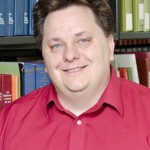 Associate University Librarian, University of Waterloo
Associate University Librarian, University of Waterloo
Where do you work and what is your job title?
My name is Pascal Calarco. I work at the University of Waterloo in Waterloo, Ontario, Canada as the Associate University Librarian, Research & Digital Discovery Services. I am a member of the Library’s
senior executive, managing several departments and programs, and contributing to the leadership of the Library on campus and in the profession.
What are some of your job responsibilities? (Or, describe a typical day on the job)
Lots of collaboration! I am responsible for two technology departments, a cataloguing and metadata department, Special Collections & Archives, and a growing research support program that includes a Bibliometrics & Research Impact Librarian and part of two Liaison Librarians time to help support research data management services. Articulating strategic directions and priority plans for these departments, working with my managers on performance management and review, identifying and hiring the best talent we can get and providing leadership for the quickly evolving library technology landscape are some of the things I find myself working on in a typical day. Much of this involves meetings — with library folk here as well as our consortial partners at the TriUniversity Group of Libraries — to discuss, decision, implement, and assess the work that we do for our students and faculty at University of Waterloo.
What education/career path led you to where you are today?
I have an Honours Bachelor of Arts in Political Science, and initially I wanted to do international policy development or non-government organizational work in the third world. When I couldn’t get into my graduate school choice, I reassessed and, after talking to my father at some length, decided to pursue the ALA-accredited two year Masters in Library & Information Studies at McGill University, in Montreal, Canada. After graduation, my first position was at the Cushing/Whitney Medical Library at Yale University, where I served as the IAIMS Assistant for a National Library of Medicine grant there. I cut my teeth on perl scripting and HTML coding by hand back in those days, and developed the first web CGI-based forms for library services at Yale, as well as participating in medical informatics activities and projects. That really drew me down the path of systems librarianship, however. My next position was at Virginia Commonwealth University Libraries in Richmond, VA, where I served as Advanced Technologies Librarian for a few years before I got the opportunity to take on a management role as Head, Library Information Systems there. Wanting to move closer to Ontario, I next took a position as Head, Library Systems at the University of Notre Dame, and was responsible for several enterprise library systems for Notre Dame and three private undergraduate colleges. When the AUL position came up and the chance to move back home, I found myself in my current position, and even purchased the family home from my Dad where I grew up.
What are some of your favorite things about your line of work?
I really enjoy working with people, both the peers and folks who report to me. I love building a really effective team over time, with new hires and considering complementary skill sets and evolving roles. I enjoy strategic planning and working with our staff to articulate new ways to assess and plan what we do in the Library and meet the needs of our campus community. I love working in academe, being surrounded by a lively intellectual environment and continual learning. I also really enjoy the challenge of tackling something completely new, and working with others to craft our path to implement that service, system, process or plan.
Do you have any advice to someone just getting started in the information profession world?
Make sure you contribute and get involved in the wider community in something that you can get jazzed about and find passion in, beyond your daily job. Join a vibrant professional organization such as AMIA, ASIS&T, CNI or LITA, all of which I have been involved with. Be intellectually curious and don’t be afraid to dive into something new, because change is one of the only constants, these days. Know yourself, assess your strengths and weaknesses, and work with others and yourself to figure out what path you want to pursue, but be open to changing that over time. And be open to travel and working in different countries and professions, if you are able and your situation allows. You will bring back so much, in my experience, that is personally and professionally fulfilling.
 Manager, Evaluation & Accountability, Institutional Analysis and Planning, University of Waterloo.
Manager, Evaluation & Accountability, Institutional Analysis and Planning, University of Waterloo.
Where do you work and what is your job title?
I am the Manager, Evaluation & Accountability in the Institutional Analysis and Planning unit at the University of Waterloo.
What are some of your job responsibilities? (Or, describe a typical day on the job)
My portfolio includes:
Surveys: from survey development, survey administration, and survey analysis and reporting.
University rankings: I work on analysis of our data submissions to world university rankings, as well as analyzing our results and understanding their methodologies.
Support for strategic planning: In particular, I work on monitoring and reporting progress towards our strategic goals within the University’s accountability framework
Evaluation and Accountability activities: this includes government reporting under accountability agreements, developing new indicators when required, reporting on performance indicators and consulting on how to evaluate strategic initiatives.
What education/career path led you to where you are today?
This is an excellent question! I’m a good example of someone who has gained a lot of transferrable skills from both formal schooling and a variety of really interesting job opportunities. I have a Master’s degree in Linguistics from the University of Calgary. After I graduated from my Master’s, I was recruited to work at a software development firm in Waterloo, where I learned database management. I also worked for an economics firm and at the University of British Columbia in research roles geared towards understanding and developing indicators of different varieties. I came back to Waterloo to work at a health research unit as an evaluator. All of these jobs gave me the opportunity to expand my knowledge of how to apply social science research methods in a practical setting. Evaluation is particularly exciting for me because it uses social science research methods to answer very practical questions. It is work that really shows how to make things better!
What are some of your favorite things about your line of work?
In my job, something exciting happens every day. I have the good fortune to engage with people from many different parts of campus, and to apply facilitation, research and analysis skills to formulate practical solutions. I love using data analysis and research skills to create information that helps make the University a better place, and helps inform strategic decisions. It’s a place where you can really see the results of your work. I also love my team. I’ve had the good fortune to work with many wonderful people, and it makes an incredible difference to how you feel coming to work every day. Part of the reason I love my job is because of the people who make it fun for me to come to work. On days when it’s super busy and stressful, having a good team of people around you who are willing to pitch in and help solve the problem makes you feel like you can do it.
Do you have any advice to someone just getting started in the information profession world?
I would encourage someone just getting started in the information profession world to find something that they feel excited about and go for it! My focus has always been at the intersection of facilitating people to use data to help make something better – whether in the area of mental health, university decision-making, or building a dictionary in an Access database. The information profession is so broad and so amenable to transferrable skills that if you can find something exciting and develop some good competencies, the possibilities will just keep opening up for you. And – surround yourself with good people who bring different skills and capacities than you do. There is always so much to learn in this field – having smart, enthusiastic people to work with and learn from makes all the difference.
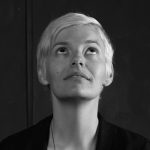 (Abby the IA), independent consultant specializing in information architecture.
(Abby the IA), independent consultant specializing in information architecture.
Where do you work and what is your job title?
I am an independent consultant specializing in information architecture. My job title is information architect. My business name is Abby the IA. I also a teacher at the School of Visual Arts and am currently serving as president of the IA Institute.
What are some of your job responsibilities? (Or, describe a typical day on the job)
A typical day for me comes in two types:
Either I am at home, hosting user and stakeholder interviews via video or voice chat, doing heuristic evaluations or making diagrams and maps of other people’s messes. Answering emails about IAI business or working on writing a new talk, lecture for school or blog post about IA.
Or I am at someone’s office facilitating workshops of their employees and users that help us make critical decisions about their information structures and the language that they use.
What education/career path led you to where you are today?
I was trained as a graphic designer in my undergraduate career. IA was a primary skill set that was imparted on me, but with print design as the medium I assumed I would work in. I have instead spent the majority of career applying what I learned to the digital world, specifically I help companies that are working across many things to take an architectural look at their systems.
My first IA job was a total accident, says Abby. “I answered an ad on Craig’s list to design a set of icons, and when I went to deliver the icons to my client, I became very verbal about my dislike of how they actually confused the interface they were to be used on. So when I protested long enough, the team asked me if I had ever heard of information architecture. I said of course I had, because I had gone to school for design. I was offered my first internship as an IA by that software team the following week. That was eleven years ago this July. And I have been a practicing information architect ever since.
What are some of your favorite things about your line of work?
I love helping people make sense of messes. Everyone has something that makes their job that much harder. I really like battling the semantic monsters that are rampant in organizations. Mostly I love the moment when everyone can clearly see what needs to be done to get through the mess they are in. The lightbulb moment is the best part of my job at work, as well as in teaching people about IA and how to practice it.
Do you have any advice to someone just getting started in the information profession world?
Spend as much time on your people skills as you spend on learning tools and concepts. The soft-skills required to productively work with information as your medium is often undervalued in traditional education, so we have to get this guidance elsewhere and often on the job, which makes it so your first job has a steep learning curve. You could get very lost in the terminology around the practice, but what it important is to maintain the beginner’s mind and approach each problem like you dont know how to solve it yet. Thats the toughest lesson I think I have to teach my students and my clients.
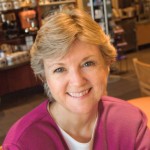 Chief Content Officer for WebPsychology.com and President of Dority & Associates, Inc.
Chief Content Officer for WebPsychology.com and President of Dority & Associates, Inc.
Where do you work and what is your job title?
I currently work in three ways: first, I’m the chief content officer for an online start-up called WebPsychology.com that focuses on mental health and psychological well-being topics. Second, I’m the founder and president of Dority & Associates, Inc., a content strategy and development consulting company. Third, I’m the creator of (and currently teaching) a course called Alternative LIS Career Paths for the University of Denver MLIS program.
What are some of your job responsibilities?
My work includes developing a strategic direction for the content we’ll have on the site, recruiting the right content contributors, helping them to shape their contributions to be most useful to our readers, and managing other day-to-day aspects of content acquisition and inputting. So a bit of strategic thinking, building relationships with writers and partner organizations, writer management, editing, and some writing. As with any start-up, you end up doing all sorts of “not in my job description” activities, but that’s also half the fun!
In my work with Dority & Associates, which I do in addition to my WebPsychology.com work, I work with clients to develop content to align with their organizations’ strategic goals. So I first work with them to understand what they’re trying to achieve, then we look at content (existing and to-be-developed) as a strategic asset for helping them achieve those goals. For most clients, I do both strategy and execution.
As an adjunct faculty member for the DU MLIS program, I teach a course in Alternative LIS Career Paths once a year – and as a result of teaching that course beginning in 1998, I wrote a book called Rethinking Information Work (currently being revised). In addition to teaching for DU, I also give LIS career workshops and webinars for a number of the MLIS programs.
What education/career path led you to where you are today?
Basically, a love of writing and research combined with a probably unhealthy willingness to try anything! After getting my MLIS in 1983, I started in publishing with a publisher of LIS reference and professional books, which then led to a job providing executive information research to the CEO of a large telecommunications company. Then I was recruited to run the DU MLIS program on an interim basis, after which I started the information center for a newly established organization called the National Cable Television Center and Museum. After that I signed on to lead the team creating the first virtual academic library, then left to start my own consulting company, Dority & Associates. I loved working independently, and so I’ll always had that “on the side” no matter what other work I was doing.
I worked on another start-up, Disaboom,as the content person doing work similar to what I’m currently doing for WebPsychology.com. Disaboom was an online resource for people with disabilities, and provided a really meaningful way to use my information skills. Unfortunately, it was financially unsuccessful, so I went back to my first love, independent work. When I was approached by WebPsychology recently to become part of their start-up team, we agreed that I would sign on as their Chief Content Officer as long as I could continue to have time to teach, do workshops and webinars, and work with outside clients. A bit chaotic, but immensely engaging and rewarding!
What are some of your favorite things about your line of work?
Learning new information, helping people use information to change their lives, collaborating with smart and interesting co-workers, coaching students and other LIS professionals and seeing them develop their best stuff, and continually growing in new directions.
Do you have any advice for someone just getting started in the information profession world?
Say yes as often as possible. This profession is one of endless change and disruption, which also brings about endless opportunity. However, to make the most of those opportunities you need to be willing to try things you’ve never done, sometimes fail, learn your lessons, and move on with your confidence intact. I’ve had a terrific time in my career and done incredibly rewarding things, but I’ve also been laid off three times and made some decisions that were, in retrospect, not the best ones. But that’s just part of being all in, of being totally engaged. So think courage, resilience, growth, and passionate curiosity. Full-tilt boogie!
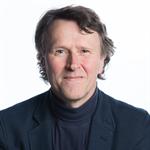 Senior ICT Business Consultant & Information Security Officer, Utrecht University
Senior ICT Business Consultant & Information Security Officer, Utrecht University
Where do you work and what is your job title?
I am employed by the Utrecht University Library (the Netherlands) as senior ICT business consultant and information security officer.
What are some of your job responsibilities? (Or, describe a typical day on the job)
Originating from ICT management I still do some hands-on work in library specific applications and services. This background helps me acting as consultant to improve and modernize the integration between applications both at the library and university level.
At the moment I am transferring our present infrastructure – a dedicated datacenter hosted inside the library – to cloud based services from different suppliers.
This involves looking to infrastructure and services from an architectural perspective, securing interoperability, availability and scalability. Another aspect is the never ending story of information security. The library’s awareness of the importance and meaning of this topic is growing and it’s my responsibility to write the organization’s policy, coordinate the implementation and act as liaison to the University’s Chief Information Security Officer. Occasional intervention in serious incidents is part of the job.
Being on the job for more than twenty years I designed and worked out our ICT landscape and act by default as coach and second line analysis expert for colleagues in the library and university. Although the design and role of my department is subject to an intense reorganization now, I am convinced there will always be need for my kind of overview and experience.
Some innovations and enhancements in the library are organized as project and acting as project manager I use various project management tools like Prince2, Lean, Scrum/Agile and more. I use such tools when I think they are beneficiary for the projects results, not because some theory prescribes them mandatory and to be honest my main tool is common sense.
What education/career path led you to where you are today?
In fact I never did any career planning. At first my education was leading to History and then to East European languages, but in my twenties I was more interested in political activism where I learned a lot about politics in organizations and society, but also had to teach myself a lot of technical, social and communication skills in a subculture that was focused on designing a better society.
Eventually in the 1980’s I worked as the bus driver of a mobile public library which lead to a study Librarianship and in 1991 to a job at the circulation desk of the university library where I still work. At that time PC’s replaced the old mainframe dumb terminals and the library tried its first boggling steps to (Inter)networked library services. Having neither education nor experience in computing but open to experimenting and learning I soon became the ICT specialist at the circulation desk. From there I joined the ICT department, where I designed the new end user computing infrastructure and implemented library management systems.
From that time on I followed and still follow a wide spectrum of courses, trainings, lectures and conferences to enrich my knowledge and skills. I feel that’s the true meaning of the French expression ‘education permanente’.
What are some of your favorite things about your line of work?
Topics like Identity and Access Management and Information Security are always interesting since they form most important prerequisites for successful library services that are available 24/7 with guaranteed integrity.
It’s always nice to help analyze problems that suddenly occur and together with the team or other specialists within the University find a way to mitigate them, preferably solve them or find a work around to secure or repair the services to our students and faculty.
Last but not least I enjoy greatly being active in the Steering Committee of IGeLU (www.igelu.org) to advocate the interests of many libraries’ business critic software. It’s so inspiring and although energy consuming also giving a boost to work with many intelligent and talented international colleagues.
Do you have any advice to someone just getting started in the information profession world?
Don’t worry about career planning, be open to new technology and develop yourself using and understanding it. You don’t have to invent new functionality or killer apps, just have an open mind and view to what’s going on in your profession and try to see opportunities. Invest in having good people around you, be a coach for them. If you are open to others, your professional network will grow automatically.
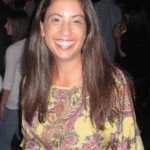 Research Analyst, Harvard University
Research Analyst, Harvard University
Where do you work and what is your job title?
I am a Research Analyst in the Alumni Affairs & Development office at Harvard University.
What are some of your job responsibilities? (Or, describe a typical day on the job)
I conduct focused research and evaluation of the wealth of new prospects and existing donors. I identify new potential donors through screening of news sources. I make wealth estimations using salary surveys and other demographic information, as well as interpret and analyze financial documents. I develop research profiles and analysis, prospect lists, ratings and wealth analysis for purposes of fundraising University-wide. I am also assigned to specific fundraisers that request specific research.
What education/career path led you to where you are today?
I have a Bachelor’s of Science in Business Administration from Northeastern University. I took part in the cooperative education program during my time there and while in my program, I worked at State Street, Fidelity, and Goldman Sachs. I went on to work at Goldman Sachs after graduation for three years in Boston and then three years in London before coming back to Boston to attend Simmons for my Master’s in Library Science.
It was my experience in finance that led me to an internship at Bain Capital in their Global Research Services group while I was at Simmons. This turned into a full-time position of Research Analyst during my last year of my program. The combination of my understanding the finance world and the search and evaluation skills I had learned at Simmons were instrumental in my success. After 1.5 yrs at Bain, I moved on to my position now, where again, my understanding of financial records along with my abilities to find, evaluate, and synthesize information, allow me to be successful in my role.
What are some of your favorite things about your line of work? Each person you research is different and has a different story. It can be really fascinating. And I just like finding stuff! And thinking of creative ways to find information. It’s like a scavenger hunt.
Do you have any advice to someone just getting started in the information profession world?
Don’t pigeonhole yourself into one specific job you hope to do. I had my heart set on being a reference librarian in a public library when I started my program. I was completely set against working in the corporate world again. But then I opened my mind up a bit and now I am in a job that I love and that is because I was open and willing to trying out different things in the information professional world. I was also really honest with myself about I really wanted out of a job, despite where it might be and what type of role it is. I also had to constantly remind myself why I had chosen my new path in the first place and that was really to have a better work/life balance and to have more flexibility in my career.
Also – Be willing to get outside of your comfort zone and talk to people about what they do for work! You never know where it might lead…
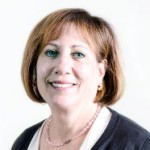
Where do you work and what is your job title?
I work at a non-profit research service called Ithaka S+R, which is headed up by Deanna Marcum. It is part of ITHAKA, which also includes Portico and JSTOR. We conduct research and engage in consulting projects in academic institutions, cultural organizations and the publishing community. Our focus is generally on helping the academic community deal with current economic and technological changes in areas we refer to as Educational Transformation and Libraries and Scholarly Communication. I am in the latter group within S+R where I work with Roger Schonfeld and some wonderful researchers and methodological specialists.
What are some of your job responsibilities? (Or, describe a typical day on the job)
Most of my work revolves around projects that I conduct or facilitate in academic libraries. For example, in the past year I have conducted research on study groups at the University of Nevada, Reno; supported a project to improve undergraduate research skills at the University of Pittsburgh by working with non-tenure-stream faculty; and facilitated an inquiry at Cornell University into the daily practices of serious researchers geared toward envisioning the research library of the future. In the recent past, I have also done a project with a public library to design a new space for young adults and one with a medical school to design a special visualization facility connected to a super computer. I am currently working on projects at Auburn, Montgomery College and Yale as well as the Government Publishing Office.
In all of these projects, the approach I take is a collaborative design process through which the people who will work with a technology or in a space play a major role in developing the requirements for the tool or space. The requirements, along with qualitative data, inform architects, software engineers, and other specialists about people’s work-practice needs. They can then come up with designs that help people and address their needs based on information rather than assumptions or historical information, which may be out of date or simply inaccurate.
Occasionally, I play a role on someone else’s project. For example, on behalf of the Educational Transformation team, I made a site visit to the University of Technology Sydney in April, interviewed more than 20 people, toured the remarkable campus, and wrote up a case study.
What education/career path led you to where you are today?
I have a PhD from the Joint Program in Applied Anthropology at Columbia University, which I did through Teachers College. I had painted seriously and taught elementary school for five years before going to grad school and I was already pretty aesthetically attuned and deeply interested in questions related to schools and politics, so applied anthropology was a great choice for me.
I also did a diploma at the Institute for Social Anthropology at the University of Oxford where I developed an interest in lowland South American ethnography. I went to Guyana and then Brazil to do fieldwork with the Wapisiana, an Arawakan people who live in the Rupununi Savannahs. And I spent six months on a remote island in Papua New Guinea, which provided an eye-opening contrast.
The rest of the story is a series of lucky opportunities leading to my work with Susan Gibbons and David Lindahl at the University of Rochester’s River Campus Libraries. We worked together for almost ten years, conducting participatory design projects with faculty members, students and staff including the DSpace project, the Studying Students project, and many others. And then, more great luck, I came to S+R.
What are some of your favorite things about your line of work?
The work is always interesting. I feel like I have a license to be nosy and I love to see what people do when they work, ask them about their practices, and see what’s on their desktops and in their bookcases. I also love to crunch data and write and I do a lot of that. And I am always meeting new people and making new friends and traveling to pretty amazing places.
Do you have any advice to someone just getting started in the information profession world?
Find out as much as you can about what you would do if you succeeded in your chosen field. Would your daily life be what you want? Would you be where you want to be, with people you want to be with? Your accomplishments are important but it is your satisfaction with daily life that is the key to getting into the right line of work.
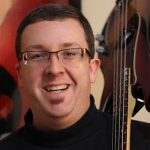 Engineering Manager, Red Hat
Engineering Manager, Red Hat
Where do you work and what is your job title?
I work at Red Hat as an Engineering Manager. The team I manage is the Fedora Engineering team, which provides services and support to the Fedora Project, a partnership of free software community members from around the globe. The Fedora Project builds open source software communities and produces a Linux distribution called Fedora.
What are some of your job responsibilities? (Or, describe a typical day on the job)
My typical day has several dimensions. As a people manager, I spend a majority of my time clearing or clarifying paths for the people on my team to be able to do their jobs as effectively as possible; driving or participating in discussions to develop and refine strategies and goals for our team; and working directly with team members to both understand and celebrate their achievements, and help them with their short- and long-term work, development, and career goals.
What education/career path led you to where you are today?
I was a liberal arts major in college, but I was always interested in computers as a hobby. In my first professional job I worked part time as a budget and strategic analyst, and part time as an IT support guru for a government law office. I later turned my part-time duty into a full time position, and kept developing my knowledge through learning and experimentation at home. My next job was as a forensic examiner in a law enforcement laboratory for about seven years, where I became a senior team leader and taught thousands of other professionals. It was here in 1996-1997 that I got involved in Linux, developing forensic processes using the open source operating system, and then building curricula around them. This was in the days before “computer forensics” was a Real Thing; we were on the forefront of this field, and it was a challenging and rewarding job. I later moved into operational technology and building field solutions, using the flip side of some of the skills I developed in forensics. On the side I kept broadening my Linux skills, and participated in open source through the Fedora Project, which started in 2003. I attended many of the early Fedora conferences, and built a decent reputation among the community — enough that in 2008 the project leader tapped me to see if I was interested in coming to Red Hat to work full-time as his successor. After doing that for a couple of years, I served as the R&D coordinator for Red Hat Enterprise Linux 7, the next major version of the company’s flagship operating system product. It was a very successful launch, and then an opportunity opened up in late 2013 (even before the product launched!) to manage a team of people who worked full-time on the Fedora community’s systems and services. I was able to finish out the product launch successfully, and now I’m fully engaged managing this team and loving it.
What are some of your favorite things about your line of work?
It’s rare that two days are the same. Red Hat is the leading name in open source and there are always exciting new projects and opportunities happening. With them come a lot of planning and execution challenges, so I have to juggle an immense number of tasks at one time. While this is sometimes difficult, it’s also rewarding to know that both Fedora and Red Hat are changing the world with open source, and our community approach to developing and integrating new technology. The best thing about this work, though, is the people — my team includes some of the smartest and most enjoyable personalities I’ve met. And that goes for Red Hat as a whole, frankly. It’s helped me meet some of the brightest and most interesting people I know, and the culture here is like no other. Thanks to that culture of openness, I’ve been able to collaborate across the entire company with people in brand and marketing, legal, financial, support, and product groups.
There’s nothing more engaging and interesting than seeing how your work impacts or is affected by a broad range of interests.
Do you have any advice to someone just getting started in the information profession world?
Be engaged and involved beyond just what your paycheck demands; learn on your own, and network with people through open communities that share your interests and passions. You never know where those connections can lead. There are so many ways, especially with the rise of open source, to create and collaborate with others on real IT solutions in a way that develops your personal growth and career opportunities. Be willing to step out of your comfort zone, work constructively and positively with others, and say “yes” when a door opens.
 Vice President of Records Management, New York City Economic Development Corporation
Vice President of Records Management, New York City Economic Development Corporation
Where do you work and what is your job title?
I work at the New York City Economic Development Corporation (NYEDC), a 501(c) 3 not-for-profit local development corporation. I am the Vice President of Records Management.
What are some of your job responsibilities? (Or, describe a typical day on the job)
I supervise a staff of four (4) full time records analysts. Two (2) are traditional records analysts and two are electronic records analysts. Each staff member spends part of their day searching for records in the records database for internal customers who contact the department in search of records. Records analysts also inventory records coming in. Inventory is done down to the folder level. The records management department needs to balance the desire to inventory the records as accurately as possible with the reality of how accurate the inventory needs to be for finding purposes. My staff also enters data into the database, taking care that the data entry is accurate and consistent. This is especially necessary for departmental names which change very frequently. My staff consists of two graduates with an MLS and one other employee who has previous experience as an electronic records manager. Data elements required for each record series are carefully documented to ensure accurate data entry. Records management work requires a high level of personal judgement to operate between the abstract rules and reality of the documents available in hand. All my staff are trained to inventory different types of record series and record types, for cross training purposes and also because certain records series and types require more or less judgement and knowledge than others. Allowing the analysts to work on different records series gives each employee the opportunity to break up their day and to acquire different skills. All analysts work on both paper and electronic records but electronic record analysts have more in depth knowledge of metadata schemas and taxonomies.
In addition, all staff are engaged in a multi-year destruction project. Destruction following retention schedules and preserving litigation holds has not been carried out for some time. All staff also participate in transferring records of historical interest to appropriate local archives in the New York City area. Each records analyst has a historical speciality which helps in the selection and transfer of historical documents. My specialty is digital preservation with a focus on the best way of image capture. I am a photographer which is very helpful in understanding digital preservation and scanning techniques. I also teach a course at the library school at Queens College City University of New York (CUNY) on digital preservation.
What education/career path led you to where you are today?
I have a Licence ès Lettres in archaeology and art history from the University of Dijon, France. I first entered the City (of New York) service in 1985 at the New York City Department of Finance. In the late 1990’s, I worked on the development of New York City’s digital land title records system (the “Automated City Register Information System”, see http://a836-acris.nyc.gov/CP/. Then I was Director of the Office of Records and Archives Management at the New York City Department of Environmental Protection (DEP), where I set up the agency’s records management and archives program. Prior to joining NYCEDC, I was Deputy Commissioner and Chief Information Officer of the New York City Department of Records and Information Services (DORIS).
What are some of your favorite things about your line of work?
I like acting as a bridge between different branches of the organization. Because I work with so many stakeholders in the organization, I can bring together different parties to come to unique solutions. I also like being able to generate good will in this way. This is also useful for calling in favors at a later time! I like the feeling of being helpful and useful to a number of stakeholders.
Do you have any advice to someone just getting started in the information profession world?
Nothing you learn is ever wasted. Think outside of the box. Break out of the library silo. Demonstrate to potential employers how you can benefit them and figure out how to be a person to a potential employer. Find a way to break out of librarian stereotypes. Take your liabilities and make them assets. Customer support experience is important and worth making something out of in interviews and resumes. Project management experience is also very useful for many positions. Consider an MBA if you want to be a manager. There is too much turnover in information management. Too many managers in information professions get promoted because of a high level of competence in their area of expertise, but not because they are good or skilled managers. Lots of people can code; However, being able to code AND understanding the information fields is much in demand.
 Press and PR Officer & Events Manager, The Austrian Library Network and Services Ltd (OBVSG)
Press and PR Officer & Events Manager, The Austrian Library Network and Services Ltd (OBVSG)
Where do you work and what is your job title?
The Austrian Library Network and Services Ltd (OBVSG) is the service centre and operative leader of the Austrian Library Network (OBV). OBVSG is a state owned company with about 30 FTEs. OBV is the big national consortium of Austria’s research and administrative libraries with about 70 participants representing 90 single institutions. OBVSG acts as the consortium’s head office by providing a central cataloguing system, maintaining external and authority data as well as the Z39.50 interface. Besides that, OBVSG is acting as an application service provider for local library systems (about 60 institutions), local search engine portals (17 institutions) and software platforms for retro digitisation and publication repositories.
I am working for OBVSG as a press and PR officer as well as an events manager.
What are some of your job responsibilities? (Or, describe a typical day on the job)
I am webmaster of the OBVSG homepage and in charge of all routine activities: updating the news section with OBV or OBVSG related announcements, publishing relevant events within the consortium or within the library / information / scientific public, keeping current contents up to date, building and maintaining new pages etc. Administrating our content management system TYPO3 and providing regular trainings for our editors is also part of my tasks. Besides that I am writing a high class printed newsletter with latest news from the consortium, which is regularly sent to our customers as well as to head offices of all scientific institutions all over Austria. I am also responsible for advertising (flyer, promotional gifts, stand-up display, folders etc.) and Corporate Design (printed matter, signs, file templates etc.). As a press officer, I publish press releases and cooperate with partner manufacturers, with other scientific organizations or with the Federal Ministry of Sciences. I am putting together press kits to be downloaded from the website. Moreover I am providing national media of information business with regular updates on the work of OBVSG and OBV.
As an event manager, I am organising every detail of the yearly Consortium Day with about 100 participants (agenda, infrastructure, catering, social events, conference folder, sponsors, email communication, website etc.). Besides that, I am regularly contributing to a lot of other events: Austrian Library Convention (1000 participants), IGeLU Meeting (400 participants), other user meetings etc. Moreover I have organised national conferences on specific opportunities or topics.
Besides these responsibilities I am Steering Committee member of the International Group of Ex Libris Users (IGeLU), Chair of the Programme Planning Committee of the yearly IGeLU Meetings and Coordinator of the IGeLU Special Interest Working Group on Consortia.
What education/career path led you to where you are today?
After studying Philosophy and Classics (Ancient Greek), I was awarded a Master of Philosophy – which my library career has nothing to do with! I started working as a cataloguer for the University of Vienna Library before I had finished my studies. After moving to Vienna University of Technology, I kept working as a cataloguing expert for about 6 years. With a growing interest for computer systems I changed my position to a systems librarian – and became responsible for implementing and maintaining the university’s Integrated Library System. As a cataloguer as well as a systems librarian I had received lots of trainings by the state, by my home institution, by software manufacturers and external institutions.
When I joined OBVSG in 2003, I continued working as an Aleph system librarian, looking after the national central system as well as an upgrowing number of local systems, which were running at the consortium. After nine years, this ended up with responsibility for 30 different libraries, together with a team of systems librarians which I was leading. Besides that I was in charge of the website and public relations for OBVSG. As this – no surprise – turned out to be too many responsibilities in the end, I decided to continue as a head of communications for the company. I joined the management board in 2012 since when I am focusing on all communication matters of OBVSG. At the same time, I refused an offer to become Executive Director of LIBER, the Association of European Research Libraries.
What are some of your favorite things about your line of work?
I like to work for libraries – which are the “memory of mankind”. It is great to provide users with the cultural heritage of the human intellect.
It is also fascinating to work with computers – these merciless encouragers of logic.
I like working for the scientific community.
I love being in contact with people from all over the world – which I am while working for an international software user group.
Do you have any advice to someone just getting started in the information profession world?
It is the same advice as for any other business in the world:
Be curious. Stay curious.
Follow your heart. Follow your intuitions.
Do what you like. Don’t do what you don’t like.
Keep learning. Keep going.
Work hard.
Enjoy vacation.
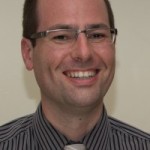 Head, Digitization Projects, National Library of Luxembourg
Head, Digitization Projects, National Library of Luxembourg
Where do you work and what is your job title?
I work for the National Library of Luxembourg in the New Technologies for Communication and Information department. The national library is a multifunctional library. First, it’s responsible for the legal deposit of all published materials in Luxembourg and second it’s also an encyclopedic library with content from all domains of knowledge. The library is also managing a library network and the associated IT systems of more than 65 libraries in the country and is responsible for the national consortium for electronic publications. Although my job title is Head of Digitization Projects, I’m also
involved in other IT projects of the library.
What are some of your job responsibilities? (Or, describe a typical day on the job)
My main task is to manage the digitization projects. I’m writing the technical specifications for these, which we then use to subcontract the work to companies through a tender process. Afterwards I perform quality assurance and finally I’m taking care of the digital repository which is managing the digitized documents.
Even before digitization starts, the library has to select the documents to be processed and while I have colleagues who handle inventory and restoration, I’m involved in the legal discussions we have with publishers and other stakeholders about copyright issues. These heavily influence what we can digitize. Analyzing the source material from an intellectual point of view and how to best represent it in digital form is a challenging and interesting part of the work. We have developed models to represent newspapers, serials, books and manuscripts and will probably also handle other materials. During the project phase, when the external company is digitizing and creating metadata, I handle the project from the library’s side and check whether the output we receive conforms to the specifications I wrote before. A colleague of mine has written software to perform some of the checks automatically and aid in the manual checks and I’m sometimes extending or correcting this software. When the data is all fine, I ingest it into our repository and make sure everything works correctly. I’m also doing routine maintenance of the repository, like configuration, applying vendor patches and making it interoperate with the rest of the library’s systems.
Apart from digitization I help out with other IT projects of the library. I’m currently involved in the library’s search engine for the catalog, digital and electronic publications, in the long term preservation project and in the webharvesting program that is being set up. And then I’m also helping with the general IT operations that are in support of the library itself, such as helping to migrate users to new versions of Windows, the virtual and physical server infrastructure, backup, network etc.
What education/career path led you to where you are today?
My initial career path was not geared towards libraries, since I studied Mathematics and Computer Science. My first job after University was working in a small software company in Spain. The company develops a computer-aided translation program and I found the combination between the “hard edged” IT and “soft and fuzzy” languages field very interesting. When I moved back to my home country, Luxembourg I was looking for a job and applied to different positions. The reason I chose the library is because during the interview process it became clear to me that libraries are changing a lot and cutting edge work can be done. Since I started at the library in 2007, I’ve been responsible for digitization but also started a few projects for which the library could then hire additional people to go from project to production systems.
What are some of your favorite things about your line of work?
Digitization creates masses of rich digital content from the rich source documents. This is a very exciting time when content becomes unlocked from the physical form and you can start mining this data as a whole and process more text than any human could read in a lifetime. It’s exciting to be part of that process. I love being able to build something that is useful to someone. After each digitization project is finished and the content is online, the response from the community of researchers and users is always great. I’m fortunate in that the library encourages international collaboration, since I love meeting new people and getting ideas on how to improve our own projects and systems. The New Technologies department is quite small and it has a great team spirit, which makes everything much easier.
Do you have any advice to someone just getting started in the information profession world?
Love the content and love the technology. In order to really get the most of out of content these days, it pays off if you know how to program, use databases, reporting tools etc. You don’t have to study IT but learning a thing or two about it will make you a much stronger information professional.
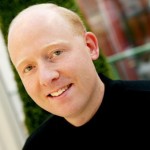 President and Founder, Semantic Studios
President and Founder, Semantic Studios
Where do you work and what is your job title?
I’m the president and founder of Semantic Studios, an information architecture and user experience consulting firm headquartered in Ann Arbor, Michigan. Of course, Semantic Studios is a one-man operation, so I wear many hats and titles: writer, speaker, information architect, solopreneur, and the guy who makes the coffee every morning. I’m fortunate to share office space and collaborate with design firm Q LTD, so I’m not forced to drink alone.
Describe a typical day on the job.
After dropping our daughter at school, I open up the office and make the coffee. Then, I spend a few minutes scanning email (deleting spam), Twitter, Facebook, and the New York Times, before getting down to work. On a busy day, I may have several calls or online meetings. This year, I’ve been blessed with an abundance of awesome clients — Cisco, Harvard, the Kresge Foundation, the Library of Congress, Macy’s, and Polar Bears International — so I’ve had a fair number of busy days. On a quiet day, I may be writing an article, working on wireframes, or preparing for a presentation. Whenever possible, I wrap up with a swim, run, or bike ride, so that when I get home, I’m relaxed and ready for family life.
What education/career path led you to where you are today?
After graduating from college in 1991 with a degree in English Literature, I had absolutely no idea what to do. So, I lived at home with my parents, took a job I hated, and desperately searched for my future. I came up with all sorts of ideas from hospital administrator (my parents just laughed) to “a job in publishing” (I had a few interviews in New York City but never got an offer). One day, while browsing the shelves of our public library, I stumbled upon a very old book entitled “Careers in Library Science.” While reading this book, it occurred to me that the principles of organization developed for libraries could be applied to the online networks like AOL and Prodigy I’d been exploring in my free time.
So, I went to the University of Michigan’s School of Information and Library Studies, where I promptly fell in love with the Internet (and with one of my fellow students who is now my wife). After graduating in 1993, I partnered with Louis Rosenfeld to build what became the world’s first information architecture consulting firm, Argus Associates. We had a wild ride, growing to 40 people and 4 million in revenue, before closing when the dotcom bubble burst. Along the way, we wrote the “polar bear book” which sold 150,000 copies and helped launch information architecture as a worldwide community of practice.
Since 2001, I’ve been enjoying life as a freelance information architecture consultant. In addition to my work with clients, I write books and articles, speak at conferences, and serve on several advisory boards including Rosenfeld Media and Project Information Literacy. I’m also a founder and past president of the Information Architecture Institute, and I’m eternally grateful to the international band of volunteers that keep our nonprofit chugging along.
What are some of your favorite things about your line of work?
I love the diversity. One day I’m helping the world’s largest library to define its web strategy, and the very next day I’m designing the search user interface of a mobile app for an e-commerce startup, and then I’m helping a Fortune 500 to explore the challenges and opportunities of cross-channel user experience design. Given these massive contextual shifts and the pace of technology change, there’s always something new to learn.
Also, as a consultant and as an invited speaker at conferences, it’s been amazing to travel the world. I’ve visited Australia, Brazil, Canada, Chile, Denmark, England, France, Germany, Italy, Japan, the Netherlands, New Zealand, Norway, Portugal, Russia, Spain, and Sweden. In each of these places, I’ve met warm and wonderful people who are passionate about information architecture and user experience. It’s always fascinating to see what we all have in common and what we perceive or understand differently.
Do you have any advice to someone just getting started in the information profession world?
Try to attend (or even better, speak at) a few events such as the Information Architecture Summit and the IxDA Conference. These are wonderful opportunities to learn and network. I also recommend volunteering with a nonprofit professional association such as ASIS&T or the IA Institute. The relationships you build through these experiences can last a lifetime. Finally, every once in a while, force yourself to leave your comfort zone — try doing something you’re not good at, and then learn from someone who is — it’s imperative that we step across the boundaries of our roles, disciplines, and professions as our world grows increasingly intertwingled.
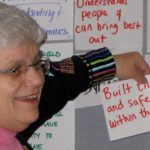 Professional Group Process Facilitator, ICA Associates
Professional Group Process Facilitator, ICA Associates
Where do you work and what is your job title?
I am a professional group process facilitator. I work at ICA Associates, Inc., which is a small company associ ated with a not-for-profit charitable organization, the Canadian Institute of Cultural Affairs. My job title is “Principal”, because I am a part-owner of the company, but a more descriptive title would be “Senior Facilitator and Trainer” .
What are some of your job responsibilities? (Or, describe a typical day on the job)
Every day is unique — I facilitate meetings and planning sessions for organizations, companies, and First Nations, and I train facilitators all over Canada. A process facilitator is the opposite of a consultant — we are experts in questioning, in group process and in drawing out the content from participants. We provide process that helps people work through difficult challenges and solve knotty problems. We assume that everyone has wisdom, and that we need everyone’s wisdom for the wisest results.
When I am facilitating, I spend a day or two preparing for the event, talking with the client and designing the process. I facilitate the process in real time, either face-to-face or virtually, or a combination of the two. I often document the results as well, using the words that people said as much as possible, within a few days of the event. Sometimes I write up a more formal report of the results as well. I work with groups as few as 3 or 4, and as many as 120 or so in the room at once. Some of my work, mostly in public engagement, has engaged up to 1000 people in a series of sessions, building consensus among all of them for the final results.
When I am training, I use facilitation techniques to demonstrate and model the methods and attitudes. The organization I work with has done research for more than 50 years into how people process information and solve problems, and created methods that follow the natural patterns of clear thinking.
In addition, I have written one book to share the methods we use, and am working on another on the underlying phenomenology behind our methods.
What education/career path led you to where you are today?
I have an undergraduate degree in Education and Anthropology, and 45 years of experience in working with groups through ICA globally. Much of my early work was doing participatory development in villages and inner cities. Much of my learning was action learning — doing with others and reflecting afterward, then documenting the methods and developing new ones. The field of facilitation has only been a distinct field for about 21 years, since the International Association of Facilitators was created. These days, some universities offer courses or programs in facilitation. Often these are part of degrees in organizational development or change.
What are some of your favorite things about your line of work?
I really love that each time I work with a client, I am learning something new and interesting. For example, one of my clients included oil companies and the provincial regulator in Alberta, and the topic was “capping thermal wells”. I had no knowledge of this field, and even the language was foreign to me! But I could guide them in a process that brought the competing companies and the government to consensus. And I really learned a lot from them in a field I never would have sought out!
I also have had the opportunity to travel widely. In addition to the 10 years that my husband and I lived in villages in Egypt, Nigeria, South Texas, Aboriginal Australia, and Jamaica, I have worked all across the Arctic and the North with Inuit and First Nations, as well as with organizations in many cities across Canada. I can say “move it” or “hurry” in a half-dozen languages!
Do you have any advice to someone just getting started in the information profession world?
It is really hard to describe the uniqueness and value of what facilitators do, as the very best process is nearly invisible and the group takes credit for their own results. People have to experience facilitation to understand it, and to know how good you are at it. So get some good training in facilitation techniques, join the International Association of Facilitators (the global professional body for facilitators), and build up your practice and expertise. Start small. Find an experienced facilitator as a mentor. Some of your early work may be pro bono, or at low fee until you have built your reputation. Ask anyone you work with for references to other potential clients.
You can also find work in a company or organization that seems to have a participatory culture, and offer to facilitate staff meetings or project planning meetings within the company.
I think facilitation is on the cutting edge of the emerging world, as more and more people are not willing to let someone else make decisions that affect their lives. And with our growing connectedness, we work more and more in groups. So good process that facilitates wise group decisions is more and more needed.
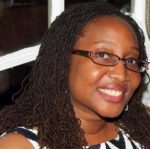 Director, Center for Biomedical Informatics, Associate Professor, Life Sciences Institute, Charles Drew University of Medicine and Science
Director, Center for Biomedical Informatics, Associate Professor, Life Sciences Institute, Charles Drew University of Medicine and Science
Where do you work and what is your job title?
I am the Director of the Center for Biomedical Informatics and Associate Professor of Biomedical Informatics at the Charles Drew University of Medicine and Science. I research computing methods and develop software that can help healthcare professionals in their decision making as they care for patients.
What are some of your job responsibilities? (Or, describe a typical day on the job)
Conducting biomedical informatics research; this includes writing research grants and research papers. My research interests include computerized medical decision support, reasoning under uncertainty, 3D graphics and visualization, and machine learning. My current research focuses on developing and evaluating novel computerized decision support systems for different biomedical domains, including trauma, breast cancer, diabetes, depression, chronic kidney disease, and HIV. I have been a principal investigator on a National Library of Medicine-funded study of computerized decision support for penetrating trauma, and on a National Cancer Institute-funded study of individualized breast cancer risk prediction using Bayesian networks. One of my most challenging recent studies involved coordinating a team of computer scientists/informaticians, ophthalmologists, sociologists, and biostatisticians and working with six community clinics to provide over 2700 diabetic patients with teleretinal screening for diabetic retinopathy.
What education/career path led you to where you are today?
I have a MSE and PhD in Computer and Information Science from the University Pennsylvania as well as a BA in computer science from Barnard College, Columbia University. My interest in biomedical informatics was formed while I was a graduate student in computer science at the University of Pennsylvania. Before then, I had no idea that the field existed. I had the good fortune to work with a trauma surgeon (John Clarke, FACMI) on a computerized decision support system for penetrating trauma and joined AMIA (the American Medical Informatics Association) as a student member. I haven’t looked back since.
What are some of your favorite things about your line of work?
I enjoy being able to use informatics and telehealth methods to improve access to care and the way in which care is provided in medically underserved communities within the US and internationally.
Advice for someone entering the informatics field
Try to attend informatics conferences such as the American Medical Informatics Association annual fall conference. It is an opportunity to learn what is new and exciting in the field, to network with people who have interests similar to yours, and to potentially find mentors who can guide you as you grow in the field.
 E-Learning Librarian, Hodges University
E-Learning Librarian, Hodges University
Where do you work and what is your job title?
I am the E-Learning Librarian at Hodges University, a private nonprofit university near my childhood home in southwest Florida. We are a Hispanic-serving institution with over 2000 mostly nontraditional learners. Hodges offers forty degrees, in both traditional and competency-based formats, as well as the largest ESL program in the region. I marshal the Terry P. McMahan Library’s digital services and resources to support these programs and other academic initiatives at Hodges University.
What education/career path led you to where you are today?
I have a bachelor’s degree in history and English and the usual Master of Science in Library and Information Studies (proud Florida State University alum—go Noles!). Stereotypically, I was first drawn to librarianship because I love reading (that’s an Ernest Hemingway t-shirt I’m wearing in my profile picture). In fact, I have worked in libraries since the age of 18. My first job was with Collier County Public Library, where I served as a reference and circulation assistant. My current director saw me at work, recognized my caliber, and recruited me. One coffee-shop interview later, I found myself filling out the paperwork for my first faculty appointment!
What are some of your job responsibilities? (Describe a typical day on the job)
My job encompasses eight roles that larger institutions probably would classify as separate positions. I am the web developer, electronic resources manager, distance learning coordinator, scholarly communications resident, information competency instructor, systems librarian, reference librarian, outreach specialist, and technology trainer. My colleagues handle reference, cataloging, collections, and administration. In addition, I serve on university-wide committees for student success, diversity and inclusion, and sexual assault prevention and awareness. I also liaise with the School of Liberal Studies and our wonderful English and interdisciplinary studies faculty.
Inevitably, I sometimes feel inadequate to the volume and variety of work I have to do. On the other hand, I get to go home every day feeling that I achieved at least one concrete goal, whether it was saving $8,000 on a new contract or helping a student get an A on a paper. My job is incredibly complex, so every day is unique—I love it.
I’m faculty, so flexibility is built into my schedule. However, my workdays generally commence at 9 AM. I start each morning by writing a list of goals to be accomplished in the next eight hours, tackling the most challenging goal first. A typical Wednesday this week involved troubleshooting an e-resource access issue, tutoring half-a-dozen undergraduate students in database research and APA citation style, meeting with faculty to coordinate the website launch of the university’s Writing in the Disciplines Resource Center, meeting with an instructor to discuss research for her dissertation, and accepting a Tootsie roll from a student as a token of appreciation for my help. Afternoons, I set aside time to schmooze with faculty in their offices. The height of successful outreach is when the librarian is invited to a departmental pool party!
What are some of your favorite things about your line of work?
Students usually don’t come to us unless they are frustrated, frazzled, or panicking about assignments. As a reference librarian, I am able to reassure them and provide them the resources and guidance they need to succeed. I find it incredibly rewarding to see the fear leave their eyes and to experience their heartfelt thanks (occasionally hugs or other tokens of appreciation). In this profession, you can’t afford not to care about people. Even systems librarianship is ultimately all about the humans who use the systems in question. Just as important are vendor relationships—I have worked with vendors to negotiate savings of tens of thousands of dollars while growing our database offerings in the months since I took over e-resource management. While I negotiate these great deals, I exchange birthday cards with vendor reps. I also blog and run social media for the Library & Information Technology Association (LITA), thanks to which I have built wonderful relationships with librarians nationwide.
Best of all, I freelance as a professional trainer and consultant. I have taught five webinars for regional and national organizations (including LYRASIS), and I have another four webinars under contract for September. I mostly teach copyright and fair use, though I have presented on e-resource management and open access too.
Advice for someone entering the information field
Success is so much about whom you know. I broke into the webinar field because I knew one local organization’s executive director—after two successful webinars with her, word of mouth grew and I was approached by three other organizations. I cold-called a fifth organization and by then had the credibility to pick up another contract. And two of the people who hired me had known me from conferences.
Networking is essential to success, and actively participating in conferences and professional social media, particularly Twitter, help. Some of my best professional connections have become personal friends thanks to Twitter—I went on an amazing post-conference road trip with one of them. Strive to be open, if not opportunistic. You will be amazed at what opportunities emerge when you are flexible enough to embrace them. Walk through the doors. Do all the things. Move the cheese.
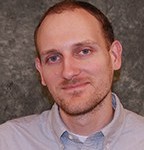 Metadata and Cataloging Librarian, Iowa State University
Metadata and Cataloging Librarian, Iowa State University
Where do you work and what is your job title?
I work at Iowa State University as a Cataloging and Metadata Librarian, with a focus in metadata.
What are some of your job responsibilities? (Or, describe a typical day on the job)
My job entails a plethora of metadata responsibilities. I engage in metadata creation, that is, traditional cataloging and non-traditional/metadata work, such as cataloging digitized masters theses. I employ tools for metadata manipulation. This includes anything from cleaning messy data through a simple GUI interface to making mass edits to our metadata with Python scripts. Lately I have been creating a bit of metadata documentation, such as data dictionaries, workflows, and instructional manuals for different metadata tasks. Finally, I make conceptual decisions, such as what metadata fields to use for a project and how to use them.
What education/career path led you to where you are today?
I went through the MLS program at Indiana University (IU). While there I explored several different options but ended up falling in love with the metadata courses I took. This included two workshops learning specific metadata schema (MODS and EAD), a course in general metadata where I learned a handful of metadata schema and linked data technologies, and an internship within the (former) IU Digital Library Program.
What are some of your favorite things about your line of work?
The metadata is still a fairly new field, and it’s constantly evolving. I love learning and exploring, so the current evolutionary status of metadata keeps my exploratory tendencies satisfied. There are so many things to explore in the metadata field! Another enjoyable aspect of my work is that I get to work with different technologies, including programming languages.
Advice for someone entering the information field:
The main piece of advice that I would give to anybody interested in the metadata field is to get out of your comfort zone. Most metadata courses focus on the conceptual and theoretical, but to really make it as a metadata professional you need to learn how metadata is actually used in the real world. This includes becoming familiar with tools that employ metadata, such as databases and digital asset management systems, and tools that help manipulate metadata, such as scripting languages (ex. XSLT and Python). To this end I would highly recommend looking into internships; that’s where you’ll get the concrete experience to succeed.
Generally, I would recommend becoming involved in professional organizations such as ASIST and LITA. I would also urge getting experience while in school. Many students think that just getting the degree will get them the job. That’s not-so-much the case in this day and age. Informatics positions are highly competitive, requiring experience even at the entry level (at least in the line of work that I searched for). Luckily, I prepared for this by working while pursuing my MLS. If I hadn’t, I probably wouldn’t be in the position I am right now.
